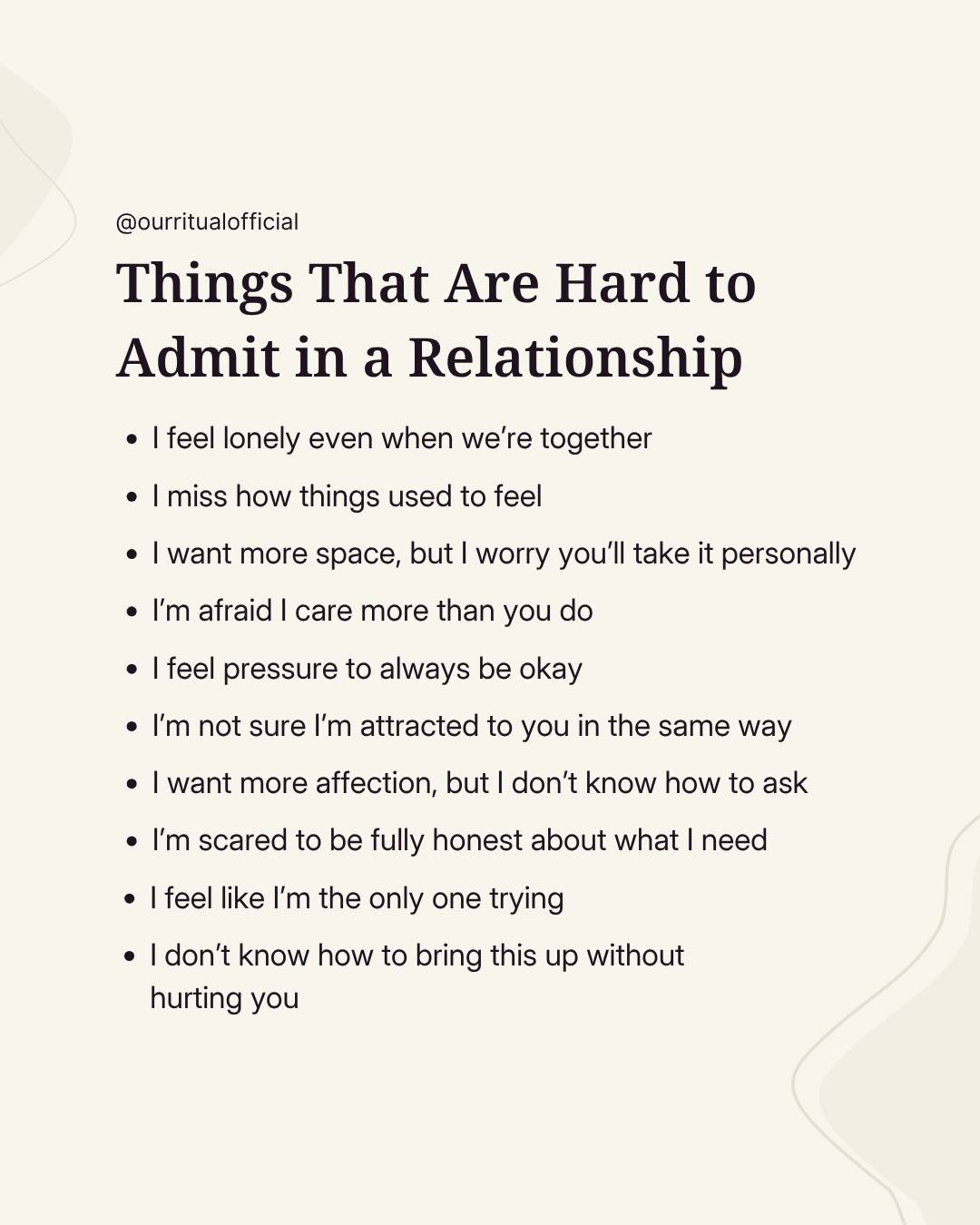5 Signs Resentment Is Building in Your Relationship and How to Fix It
Resentment in a relationship doesn’t show up overnight. It builds through unmet needs, unsaid feelings, and small moments that felt brushed aside.
While it's not a sign that your relationship is broken or doomed, it does mean that something important hasn’t been addressed. Left unchecked, resentment can erode trust and create emotional distance. But when you recognize it early, you can begin to shift patterns before disconnection becomes the norm.
Here are five signs that resentment may be creeping in and how to start turning things around.
1. You’re Keeping Score
You catch yourself mentally tracking everything you’ve done and everything your partner hasn’t. Every dish you washed, every appointment you handled, every time they relaxed while you kept things running. It all starts to pile up in your mind. The more you notice these imbalances, the more frustration simmers.
This invisible scoreboard is often a sign that you’re feeling unappreciated or unseen. Instead of expressing that openly, you may find yourself quietly tallying each slight or unmet expectation, waiting for it to even out on its own. But keeping score often leaves both partners feeling more isolated rather than understood.
2. The Mood Feels Off, Even in Small Moments
Simple interactions feel heavier than they should. A casual “Did you take out the trash?” lands like a criticism. Light conversations start to feel loaded. You might find yourself overthinking what you say or feeling tense, like you’re constantly waiting for the other shoe to drop.
When this happens, it’s often because unexpressed frustrations are starting to affect the tone of the relationship. Instead of feeling like teammates, you might begin to feel like you’re tiptoeing around each other, hoping to avoid a potential argument.
3. You’ve Pulled Back Without Realizing It
You might stop reaching out for a hug, linger less in shared spaces, or fill your time with distractions. Maybe you stay up later just to have quiet time alone, or you keep conversations surface-level so you don’t risk deeper connection. Often, this isn’t a conscious decision; it's a way to protect yourself from more hurt or disappointment.
But the more you pull back, the wider the gap becomes. Emotional distance grows, and with it, the feeling that closeness might be harder and harder to rebuild.
4. You’re Speaking in Sarcasm, Snapping, or Saying Nothing at All
Resentment often shows up in tone and body language long before it’s spoken aloud. You might hear yourself making more sarcastic comments, snapping over small things, or going quiet even when something is clearly bothering you. It can feel more comfortable than being vulnerable, but it usually creates more distance, not relief.
Over time, these patterns make healthy communication skills harder to access in moments when you need them most. What might have started as a way to protect yourself can end up creating more misunderstandings and hurt.
5. Fantasizing About Being Alone Feels Like Relief
We all need space sometimes. But if you find yourself regularly daydreaming about life without your partner and it feels freeing more than it does sad, that can be a sign that the tension has started to feel too heavy to keep bottled up.
When being alone feels like a relief instead of a loss, it’s a sign to look at what’s really going on before the distance grows.
How to Start Repairing Resentment
Resentment doesn’t go away on its own. It lingers until the unsaid is spoken and the unseen is acknowledged. The good news is, with small, intentional steps, you can start to shift the dynamic and rebuild emotional connection. Here’s how:
Speak Up Early
Resentment grows in silence. Don’t wait until you’re at a breaking point. Even a simple, “I’ve noticed I’m feeling irritable lately — can we talk about what’s going on?” can open the door to understanding and to more honest, thoughtful conversations.
Ask for Their Perspective
Instead of venting and stopping there, ask your partner: “How does that feel for you?” or “What’s your take?” This small shift from airing frustrations to exploring what’s really going on turns the conversation into a chance to understand each other instead of pushing each other away.
Balance Critique with Appreciation
When you’re focused on what isn’t working, it’s easy to lose sight of what is. Try to name one thing, however small, that’s felt good lately. A kind gesture, a shared laugh, a moment of teamwork. It reminds both of you that the relationship is worth taking care of, because even in hard moments, there are still things that connect you. Noticing those moments helps break the cycle of frustration and makes it easier to rebuild together.
Create Regular Check-Ins
Consider a simple ritual: once a week or every other week, set aside time to share what’s felt good and what needs more attention. These conversations don’t have to be long or heavy. The goal is to create consistent relationship support that helps prevent resentment from building a huge wall between you.
Get Support If Needed
Sometimes, resentment has been growing for so long that it’s hard to work through alone. A couples coach or therapist can offer relationship support by helping you understand your patterns and explore new ways to reconnect. Asking for help isn’t a sign of failure, it’s a sign you’re invested in finding your way forward together.
Ready to Take the Next Step Together?
Resentment doesn’t disappear on its own — but small, intentional changes can help you reconnect. If you’re looking for guidance on how to communicate with more care, break old patterns, and rebuild trust, OurRitual can help. Explore tools and support designed to help couples grow closer, even when things feel tough.













